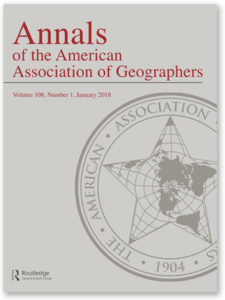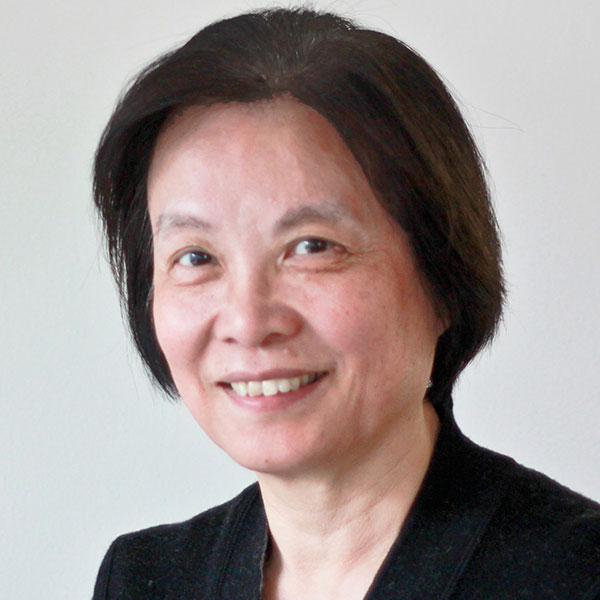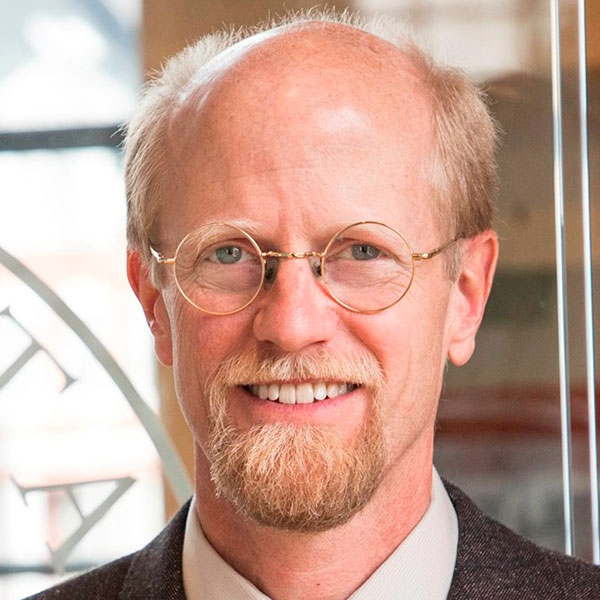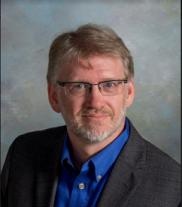Read the Journal
Latest Articles
Submit to this journal

One of the world’s leading geography journals since 1911, AAG’s flagship publication publishes original, timely, and innovative articles that advance geographic knowledge in all facets of the discipline. Articles adhere to a high standard of scholarship and make an important contribution to geographic knowledge. They are grounded in the relevant literature of the specialization it represents and, where appropriate, establish relationships to themes within the broader discipline. Journal articles span across but are not limited to Geographic Methods; Human Geography; Nature and Society; and Physical Geography, Earth and Environmental Sciences. Published 10 times a year, one special issue is dedicated to a single theme drawing on a diversity of papers from across the discipline.
Impact Factor: 3.9, ranking 18th out of 86 geography journals worldwide
Chrome is the recommended browser to access journal articles, as Firefox is currently not working.
Read the Journal- Hungarian Geography between 1870 and 1920: Negotiating Empire and Coloniality on the Global Semiperiphery
- “Gold Is a Spirit”: Diverse Ontologies and a More-than-Human Political Ecology of Extraction in Ghana’s Small-Scale Gold Mining Industry
- Modeling Spatial Anisotropic Relationships Using Gradient-Based Geographically Weighted Regression
- The Impact of Spatial Changes on the Assessment of CCTV Effects: An Example of the Green Light Project in Detroit
- Particulate Matters: Air Pollution and the Political Ecology of a Boundary Object
- New-Build Speculation and the Financialization of Urban Development in the Global South: A Perspective from Phnom Penh, Cambodia
- Postextinction Geographies: Audiovisual Afterlives of the Bucardo and the Ivory-Billed Woodpecker
- War Travels: The Logistics of Vietnam War Militourism
- Dynamic Relationship between Commuting Time and Job Satisfaction: A Bivariate Latent Change Score Approach
- How Retailer Hierarchy Shapes Food Accessibility: A Case Study Using Machine Learning Method to Delineate Service Areas and Hierarchical Levels of Food Retailers
- Assessing the Monthly Trends in Precipitable Water Vapor over the Indian Subcontinent
- Beauty and the Anthropocene: A Case for How Experiences of Beautiful Places in Nature Can Contribute to Emancipation from Instrumental Rationality
- Tank to Table: Hong Kong’s Wet Markets and the Geographies of Lively Commodification Beyond Companionship
- Reproducing the Plantation
- Feminist Agroecology Viewed through the Lens of the Plantationocene
- Plantationocene and Contemporary Agrarian Struggles
- Subalternization of a Postplantation City
- Signaling Hinterlands and the Spatial Networks of Digital Capitalism
- Unruly River and Plantation Logics
- A Spatial Network-Based Assessment of Individual Exposure to COVID-19
- Policy Mobilities, Infrastructures, and Nonhuman Political Agency
- When Is a Matrix a Geographical Network?
- Graph Theory and Geography: From Collaboration to Autocorrelation
- Horizontal Holdings: Untangling the Networks of Corporate Landlords
- Scales of Connectivity within Stream Temperature Networks of the Clackamas River Basin, Oregon
- Multiscale Complex Network Analysis of Commuting Efficiency: Urban Connectivity, Hierarchy, and Labor Market
- Untangling Infrastructure Networks Through Critical Cartographies: Mapping the Port of Trieste, Italy
- Digital Networks of Democratic Mobilization: Examining Performative, Material, and Rooted Approaches
- Geographies of Bodily (Dis)Possession: Domestic Work, Unfreedom, and Spirit Possessions in Singapore
- The Flow Termini Coverage Model for Locating Bike-Sharing Stations
- Planning for Heat Resilience and the Future of Residential Electricity Usage
- Beyond Geographies of Race
- Dasymetric Population Mapping Using Building Data
- Waste Frontiers/War Enclosures: Decolonial Geosocial Analysis of Contaminated Military Land Conversions
- Joint Effects of Perceived Hazard Risk and Contextual Situation on Responses
- Support Networks of Immigrants in Canada: A Multilevel Multinomial Analysis of Social Support
- How Mobility and Temporal Contexts May Affect Environmental Exposure Measurements: Using Outdoor Artificial Light at Night (ALAN) and Urban Green Space as Examples
- “I Rarely Go Out on Work Days”: Space–Time Constraints and (Im)mobility Experiences Among Indonesian Female Domestic Workers in Hong Kong
- Urban Visual Intelligence: Studying Cities with Artificial Intelligence and Street-Level Imagery
- Gentrification and Its Variegated Emplacements: The Politics of Microregeneration in Shenzhen, China
- Putting the Place in Flow Restructures: Networks, Assembled Positionalities, and the Special Economic Zone Development
- Using Zipf’s Law to Optimize Urban Spatial Layouts in an Urban Agglomeration Area
- Denaturalizing Dispossession in the Political Ecology of the American West: Reassessing the History of the Los Angeles Aqueduct and Its Implications for Indigenous Land and Water Rights
- Indonesia’s Plantationocene
- Linking Parasite, People and Places: The Food Networks of Liver Fluke Infection
- Network Embedding for Understanding the National Park System through the Lenses of News Media, Scientific Communication, and Biogeography
- Where the Landlords Are: A Network Approach to Landlord-Rental Locations
- The Networked Community of Urban Mobility during the Pandemic
- Urban Flood Resilience Networks: Exploring the Relationship between Governance Networks, Networks of Plans, and Spatial Flood Resilience Policies in Four Coastal Cities
- Modeling Out-Degree of Node in Commuter Networks: The Impact of Socioeconomic Profiles and Spatial Autocorrelation in Shaping Regional Connectivity
- Activist Networks, Territory, and the Spatial Diffusion of Mining Conflicts
- Spatioethnic Household Carbon Footprints in China and the Equity Implications of Climate Mitigation Policy: A Machine Learning Approach
- The Impact of Urban Scaling Structure on the Local-Scale Transmission of COVID-19: A Case Study of the Omicron Wave in Hong Kong Using Agent-Based Modeling
- Platform Urbanism and “Splintering Amenitization”: An Analysis of Canadian Cities
- Enhancing Urban Resilience Through Spatial Interaction-Based City Management Zoning
- Challenging the Gender Neutrality of On-Demand Mobility Platforms
- Confounded Local Inference: Extending Local Moran Statistics to Handle Confounding
Manuscripts
Submission:
Manuscripts should be submitted electronically through ScholarOne Manuscripts. For detailed instructions about article submission see:
The Annals publishes papers in four categories: Regular Manuscripts, Special Issues, Forums, and Commentaries. The journal also publishes the AAG Presidential Address and memorials for former AAG Presidents and distinguished geographers.
- Regular Manuscripts—Articles submitted for publication should be original, timely, innovative, and advance knowledge in all facets of the discipline. They should address significant research problems and issues, and be attuned to the sensibilities of a diverse scholarly audience. Articles should be a maximum of 11,000 words, including abstract, references, notes, tables, and figure captions.
- Special Issues—Special Issues are curated by Editors and include a collection of shorter manuscripts (around 5000 words) about a specific theme or issue. Topics rotate across the areas covered by the Annals; each year there is one Special Issue that highlights the work of geographers on a significant global theme. Abstracts of potential articles will be solicited via an open call. The articles are by invitation only, led by an Annals Editor, and based on the evaluation of the abstracts.
- Forums—Forums are a collection of short papers on a focused topic that are published together in the journal. Forums are an opportunity to showcase and advance significant intellectual insights in the discipline in a coherent and collective way. Forums consist of an introduction (2,500 words) and short individual papers (5,000 words each), with a maximum total word limit of 25,000. A forum is proposed by a forum organizer, and if accepted, the forum organizer works in tandem with an Editor to guide the papers through the peer review process. Forum proposals should provide a background and context, table of contents, timeline, and justification of the forum’s significance and relevance to the Annals audience.
- Commentaries—Commentaries are responses to specific published Annals articles and appear in online form only. They should be submitted within one year of the publication of the original article and written in a style and tone that is professional, scholarly and concise (less than 2,000 words including references). Commentaries will be peer reviewed. Authors of the original article will be invited to respond to the commentary in a short endorsement and/or rebuttal. To submit a commentary, please see the commentary submission guidelines linked above.





